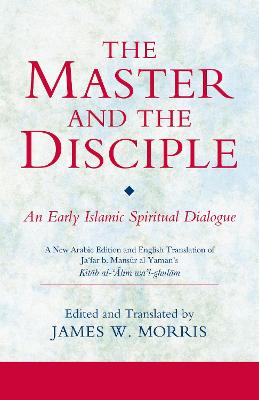Ismaili Texts and Translations
1 total work
The Master and the Disciple
Published 23 January 2020
This volume presents a fully annotated English translation and critical edition of the Arabic text of the Kitab al-'Alim wa'l Ghulam (The Book of the Master and the Disciple), one of the earliest Ismaili Shi'i writings by the famous AH 4th/10th century CE Yemeni author, Ja'far b. Mansur al-Yaman. It preserves in authentic form a glimpse of the character of Ismaili thought and activities in the period prior to the establishment of the Fatimid state in AH 296/909 CE.
In addition to being a key source of pre-Fatimid Ismaili thought, this book is uniquely important as an elaborate example of the narrated dialogue form in Arabic literature. It consists of a series of dramatic dialogues between the 'Master' or 'Knower' ('alim) and his young disciple (ghulam), and their own encounters with other seekers of truth and justice. These archetypal encounters, reminiscent of the Platonic dialogues (although probably unknown to the author), underline the full variety of human capacities and the corresponding methods of spiritual pedagogy and guidance.
Within the Ismaili tradition, Ja'far b. Mansur al-Yaman is recognised as a master of ta'wil (esoteric interpretation of the Qur'an). This reputation is amply reflected in his complex integration and existential elaboration of Qur'anic themes illustrated throughout the dialogue. The numerous allusions to the Qur'an embedded in the text, both explicitly and implicitly, serve to illuminate the correspondence between the underlying principles of the sacred book and the structures of one's own spiritual life.
In addition to being a key source of pre-Fatimid Ismaili thought, this book is uniquely important as an elaborate example of the narrated dialogue form in Arabic literature. It consists of a series of dramatic dialogues between the 'Master' or 'Knower' ('alim) and his young disciple (ghulam), and their own encounters with other seekers of truth and justice. These archetypal encounters, reminiscent of the Platonic dialogues (although probably unknown to the author), underline the full variety of human capacities and the corresponding methods of spiritual pedagogy and guidance.
Within the Ismaili tradition, Ja'far b. Mansur al-Yaman is recognised as a master of ta'wil (esoteric interpretation of the Qur'an). This reputation is amply reflected in his complex integration and existential elaboration of Qur'anic themes illustrated throughout the dialogue. The numerous allusions to the Qur'an embedded in the text, both explicitly and implicitly, serve to illuminate the correspondence between the underlying principles of the sacred book and the structures of one's own spiritual life.
